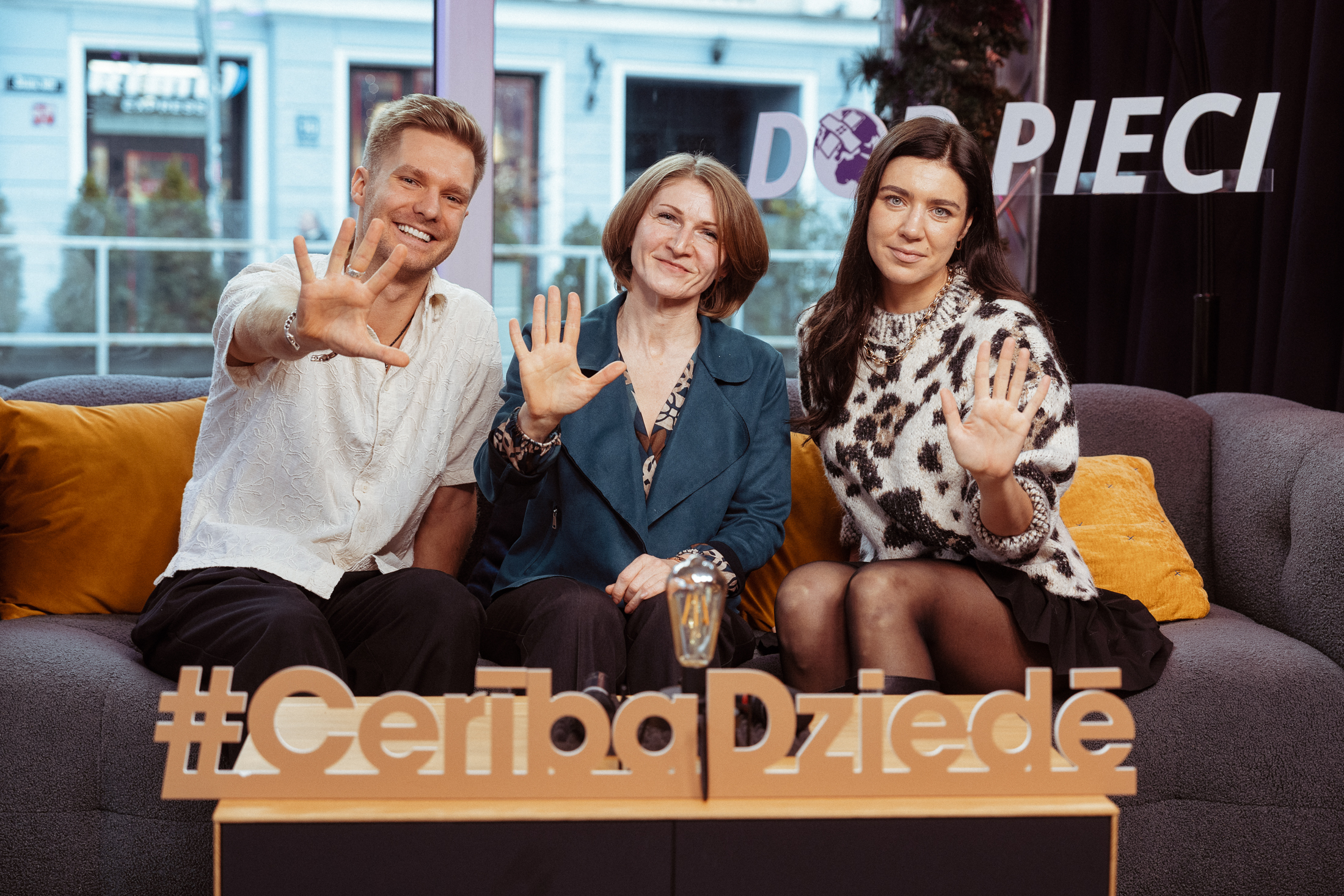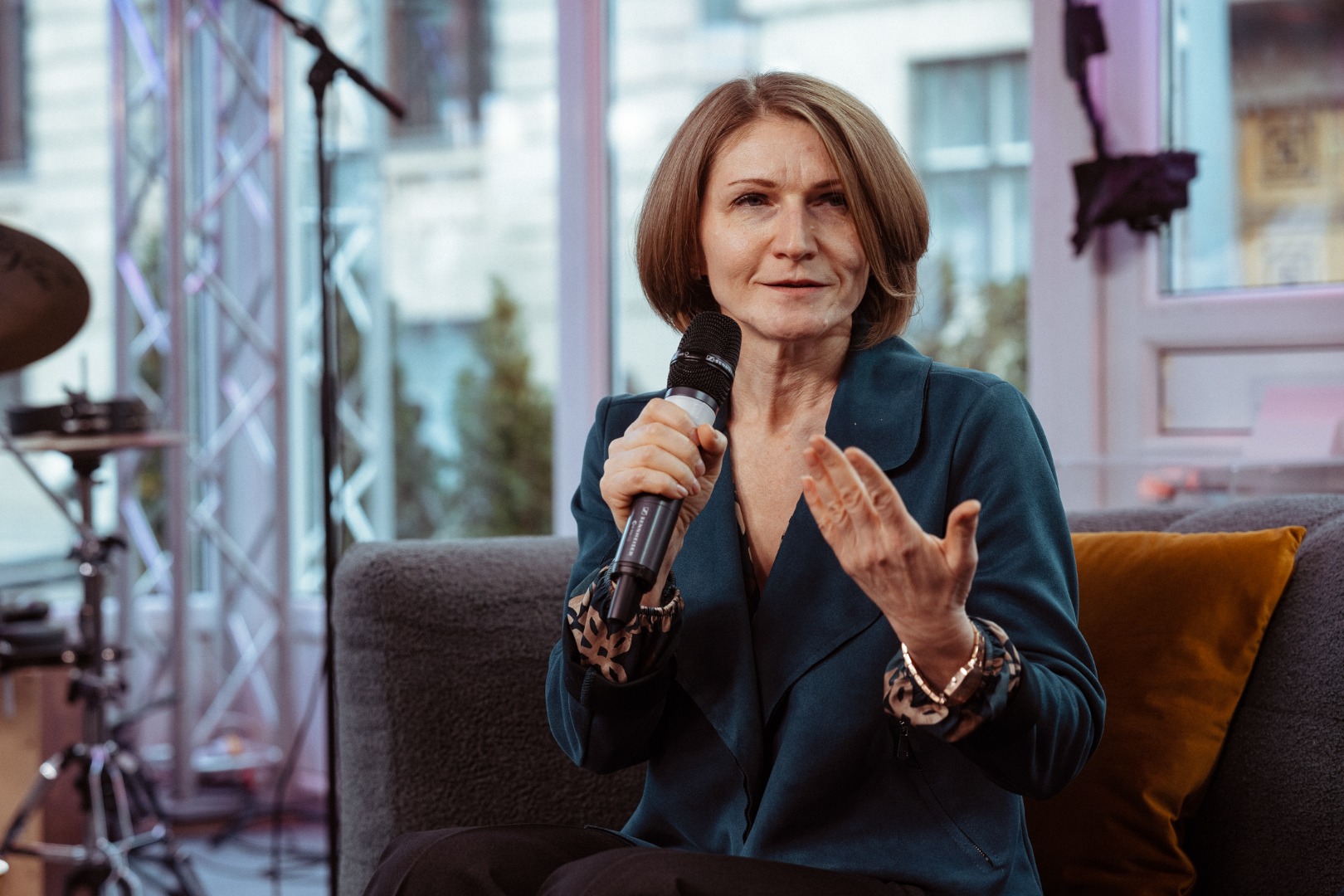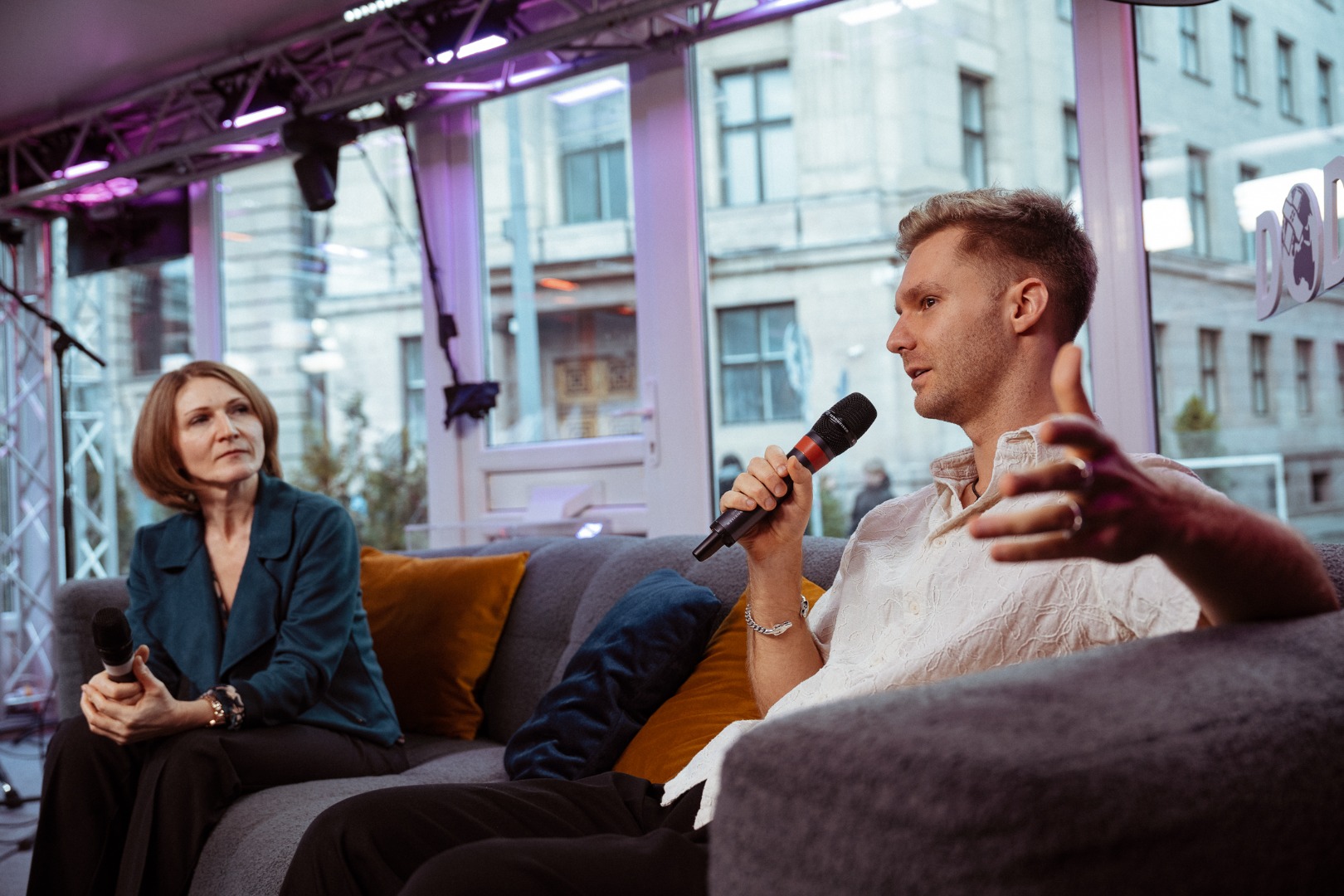19 December, 2024
On the penultimate day of the charity marathon “Dod pieci”, Rudīte Vīduša, Senator of the Senate’s Department of Administrative Cases, visited the marathon organizers’ studio at Dome Square in Riga. The moderators of the campaign asked the Senator what is the role of courts in a situation when people face financial dead-end in taking care of their health, receiving treatment and continuing their lives?
The Senator admitted that court cases in which severely ill people try to achieve the most favourable outcome possible for themselves regarding state funding for treatment are very difficult cases. The courts are in a thankless situation, because they cannot allocate funds, but only impartially assess whether state funds are distributed in accordance with the system and principles set out in the laws. What these laws are – this is already a political decision of the legislator. If, through specific cases, a court encounters doubts about the compliance of the system established by law with the rights to a minimum of medical aid guaranteed by the Constitution, the court is obliged to apply to the Constitutional Court. The administrative court has done so in three cases, and in all cases the Constitutional Court has recognized the system established in the country as compliant with the Constitution.
However, Rudīte Vīduša emphasized the great importance of primary health care, and here the courts' possibilities to help are much greater. People are increasingly less afraid to request the Health Inspectorate to verify whether their treatment was correct, including, for example, whether cancer was diagnosed in time. If errors are detected, they can receive compensation from the Medical Treatment Risk Fund. Disputes regarding this inspection and the compensation granted are examined by the administrative court.
When asked whether it is the state's responsibility to ensure that a person always receives all possible treatment in cases of severe illness, the Senator's answer was – no, neither the Constitution, nor the European Convention on Human Rights, nor the UN Covenant can require the state to always provide everything that science and medicine have achieved. The state's capabilities are determined by the funds in its budget, which in turn are formed from the taxes we pay. Therefore, the Senator emphasized that a big thank you should be said not only to people who donate to charity, but also to those entrepreneurs and self-employed people who, by paying their taxes, contribute to the state budget the money that the state can count on when operating the compensation mechanism and providing medical care. “For the state to be able to more effectively ensure the rights of its citizens to health care, there is no other way than fair laws and a filled state budget,” said Senator Rudīte Vīduša at the conclusion of the conversation.
- Conversation with Rudīte Vīduša in Latvian is available here.
This year, the public media charity marathon “Dod pieci!” focuses on the healthcare gaps in Latvia, highlighting the financial dead-end faced by people with critical and acute health problems who need immediate help but the treatment costs of which are not covered by the state. The marathon runs from December 13 to 19, and by the evening of the December 18, 372,355 euros had already been donated.
Information prepared by
Rasma Zvejniece, Head of the Division of Communication of the Supreme Court
E-mail: rasma.zvejniece@at.gov.lv, telephone: +371 67020396, +371 28652211
Photos by Andrejs Strokins, Latvijas Radio




